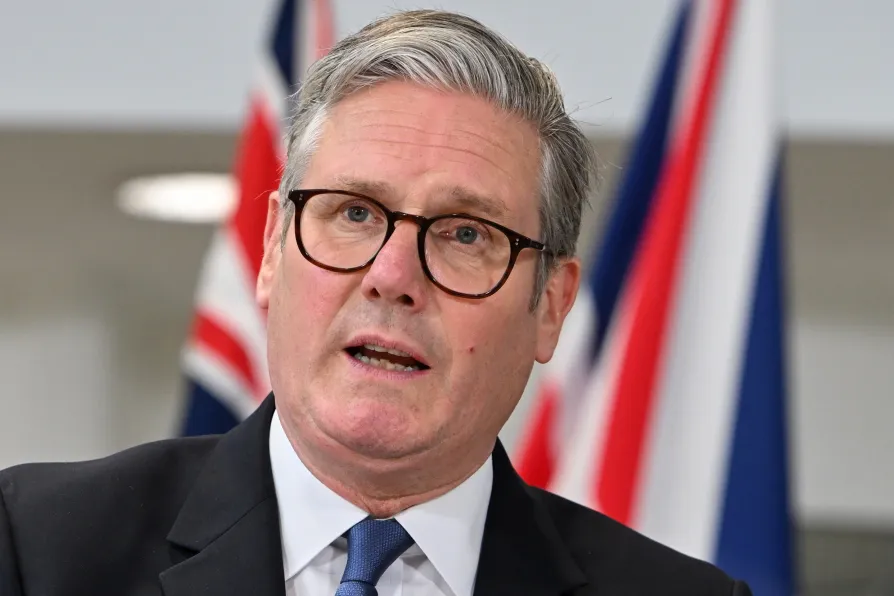
 Prime Minister Keir Starmer speaks to the media at Strategic Command Headquarters, in Northwood, Greater London, May 22, 2025
Prime Minister Keir Starmer speaks to the media at Strategic Command Headquarters, in Northwood, Greater London, May 22, 2025
THE briefings and leaks suggesting a shift in Labour policy on welfare cuts can be read in different ways.
Keir Starmer and Rachel Reeves may genuinely be taking fright at opinion polls and their council election drubbing, concluding a change of direction is needed.
Or the operation may be directed inwardly, a “we’re listening” act designed to minimise the scale of any Labour revolt while promising little or nothing.
Reports that the Prime Minister has asked the Treasury to look at how lifting the two-child benefit cap could be paid for don’t commit the government to doing anything. Suggestions criteria for access to the winter fuel payment will be “tweaked” do not amount to a U-turn or an admission that government policy has been wrong.
Those who have been pushed beyond endurance by Starmer’s anti-working class policies, to the point they have said they will rebel if June’s spending review entails more major cuts or over the attack on disability benefits, could change their minds in return for superficial concessions, or adopt a “wait-and-see” attitude that stops them engaging with what is still a growing revolt inside and outside Parliament.
Most Labour MPs, and significant sections of the trade union movement, desperately want to be able to support the first Labour government since 2010. The instinct to bite back criticism and exaggerate each concession from the right or sop to the left is strong, as we’ve seen in the reluctance to call out the very serious weaknesses in legislation like the Employment Rights Bill.
The problem with this attitude is twofold.
First, it has enabled the “great moving right show” that has been British politics for over 45 years. In other words the long defeat of the working class — visible in the declining share of national output paid in wages, while that taken in profits and rents has risen; in the transfer of once public assets including water, energy and infrastructure to private hands; and in the long-term, and continuing, decline in trade union membership.
Blind loyalty to Labour on the grounds that they are “better than the Tories” allows an uninterrupted ruling-class offensive to continue whatever the government, and ensures Labour itself is always under more pressure to appease the right than the left — a situation that has prevailed for so long that large swathes of the population no longer see any difference between the main parties.
Which takes us to the second point: it’s an attitude that has run out of road. Starmer throwing a bone to the left here or there might win back remaining Labour loyalists, but these are an ever-rarer breed.
Nigel Farage has let it be known that Reform UK plans to commit to reversing the means-testing of winter fuel payments and lifting the two-child benefit cap this week. Farage is an untrustworthy opportunist, but levels of trust in Establishment politicians are so low that there is hardly any point in Labour saying so.
MPs will not assuage the anger in their communities with words: the reversal of Labour cuts needs to be in the bag, and for that the pressure on Starmer and Reeves needs to rise over the next few weeks, not recede.
It should also be directed at a much further-reaching rethink of economic policy, one Reeves, with her “Treasury brain” and insistence on appointing senior bankers to key roles, may be incapable of: Britain’s “big four” banks posted record-breaking £45.9 billion profits last year, profits they are expected to exceed this year.
These are the winners from a setup that demonstrably fails almost everyone else — and their super-profits depend on it continuing. Bankers will not help turn Britain around.
The working class won’t start winning until the ruling class starts losing. This should inform the coming confrontation with the government on tax and spending.













